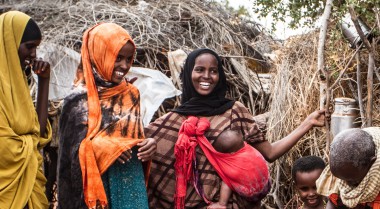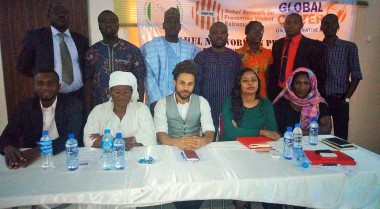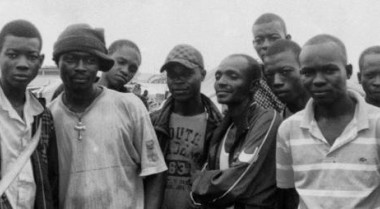
Dreaming about Peace in the Central African Republic
Following the recent signing of the National Recovery and Peacebuilding Plan (RCPCA), the Central African Republic (CAR) finds itself today at the doorstep to embark on a challenging process that is set to propel the country out of fragility and build the foundations for resilience and sustainable peace. However, significant and urgent challenges remain to be addressed, as the CAR starts to recover from more than two years of armed conflict and poor governance.
On 8 June 2017, Cordaid in collaboration with the Civil Society Platform for Peacebuilding and Statebuilding (CSPPS) and the The Bêkou Trust Fund of the European Commission's Directorate-General for International Cooperation and Development (DEVCO) hosted a workshop entitled ‘Supporting partnerships for sustainable peace in the CAR' during the European Development Days. The session gave a platform to national authorities and civil society from the Central African Republic, together with the donor community to debate the foundations and needs for building sustainable peace in the CAR using the New Deal for Engagement in Fragile States.
"The New Deal principles included in the RCPCA give us the opportunity to dream about peace in the Central African Republic".
In their opening remarks, both Mr. Felix Moloua, CAR Minister of Economy, Planning and Cooperation and Mr. Georges Petro Koni Zeze, High-Commissioner for Decentralisation, Regionalisation and Development in the CAR Government, highlighted how the New Deal for Engagement in Fragile States has inspired the planning and content of the three pillar priorities of the RCPCA, in line with the principles of aid effectiveness of country- owned and country-led processes. Since his election, the current CAR President, H.E. Mr. Faustin Archange Touadéra, has continuously encouraged all rebel groups to lay down arms and invited them to the negotiation table to address the most pressing needs of the CAR as well as ways to address the root causes of fragility and instability in the country.
"The New Deal principles included in the RCPCA give us the opportunity to dream about peace in the Central African Republic". A powerful statement by H.E. Mr. Felix Moloua. Furthermore, Mr. Eloi Kouzoundji, CSPPS Deputy Focal Point in CAR, highlighted the strong commitment by civil society to accompany the State in decentralization of state authority outside Bangui and to work on rebuilding the social contract between authorities and its citizens. Mr. Kouzoundji also commended the level of inclusivity civil society enjoyed throughout the planning process of the RCPCA, which took into account youth and women's needs in particular. Mr. Irchad Razaaly, Manager of the European Union Bêkou Trust Fund for the CAR indicated that the European Union (EU) had originally set up the Trust Fund to address the immediate humanitarian needs in the country, while laying the ground for long-term resilience. He also highlighted that The Bêkou Trust Fund was to be managed by and for the Central Africans themselves, and he committed to making these funds available to local civil society.
"the Government of CAR is the sole guarantor of peace and security; while civil society is there to support them".
Elisabeth Pape, Deputy Head of Unit Fragility & Resilience, DG International Cooperation and Development, highlighted the relevance of the New Deal framework being a tripartite dialogue between Fragile and Conflict- affected States (FCAS) represented in the International Dialogue by the g7+, their local civil society (CSPPS Country Team) supported by the CSPPS Global Platform, and donor representatives (INCAF-OECD). The New Deal has had a positive impact in supporting nationally-owned and led development plans as well as in improving greater aid effectiveness in fragile contexts. Mr. Eloi Kouzoundji, concluded that "the Government of CAR is the sole guarantor of peace and security; while civil society is there to support them".
Listen to the Debate of 8 June (in French only) here.



